Paulo César Saraceni
Birth : 1933-11-05, Brazil
Death : 2012-04-14
History
Paulo César Saraceni was a Brazilian film director and screenwriter. He directed 14 films between 1960 and 2011. His 1999 film Traveller was entered into the 21st Moscow International Film Festival where it won a Special Mention.
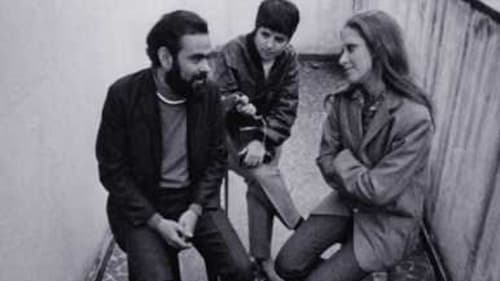
Self
An authentically marginal cinema created in Catholic university in Brazil. One of the most intriguing and imaginative moments in modern cinema in the voice of some of its select conspirators—with Carlos Reichenbach at the lead—, and through the most razing flow of images that can possibly be conceived.

Two years of research and visits to collections, cinematheques and museums; almost seventy interviews that generated 30 hours of recorded material; more than two hundred scanned photos and more than one hundred films watched. In total, more than a thousand hours of work were needed to prepare Brazilian Cinema in the 20th Century. The work is a fascinating journey through all the cinematic cycles that Brazil lived, from the pioneering Belle Époque, through the great studios like Atlântica and Cinédia, Cinema Novo, the urban comedies of the 70's, until the resumption in the late 90's. The documentary is unique, it gives the floor to who really wrote and lived this story intensely.
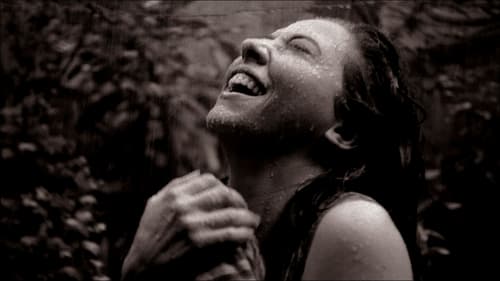
Self - Filmmaker (archive footage)
A deep investigation, in the way of a poetic essay, on one of the main Latin American movements in cinema, analyzed via the thoughts of its main authors, who invented, in the early 1960s, a new way of making movies in Brazil, with a political attitude, always near to people's problems, that combined art and revolution.

Director
A bank manager has a secret. He is compelled to bite society women hands.

himself
Film Editor/Director Ricardo Miranda makes a homage to his friend Paulo Cezar Saraceni

The documentary "Depois do Transe" covers the entire process of creating the masterpiece "Entranced Earth", which was released and awarded at the Cannes Film Festival in 1967. "Entranced Earth" charmed the world and won great admirers such as filmmaker Martim Scorsese and the writer Marguerite Duras, who at the time considered a "fabulous filmic opera."
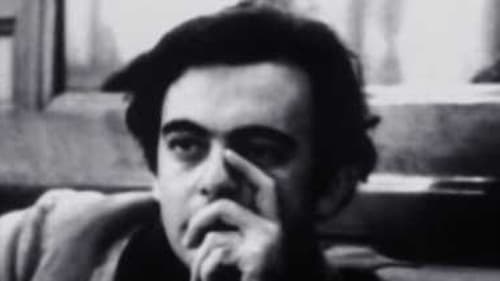
Documentary about Brazilian filmmaker Glauber Rocha, one of the most important names in the Cinema Novo, with interviews with some of his friends and colleagues.

Self

Director

Screenplay
Fortune takes four human beings to the last frontier of passion. There, where love becomes almost inhuman and divine. As if he was a comet, Rafael, the traveler, appears at the party for the cities patron saint, in a small town in the interior of Minas Gerais. He is the one who brings passion and crime, vanishing afterwards, leaving a poetic feeling in the air, which is always deadly to the ones who stay. Mrs. Ana de Lara, the proud rich widow, and Missy, still a child, whose beauty and innocence are like the Tiê-Sangue, a red bird, are the travelers victims. There is also Master Juca do Vale, a criminal, whose passion turns him incredibly human, in this story of love, death, forgiveness and resurrection.

Director
Fortune takes four human beings to the last frontier of passion. There, where love becomes almost inhuman and divine. As if he was a comet, Rafael, the traveler, appears at the party for the cities patron saint, in a small town in the interior of Minas Gerais. He is the one who brings passion and crime, vanishing afterwards, leaving a poetic feeling in the air, which is always deadly to the ones who stay. Mrs. Ana de Lara, the proud rich widow, and Missy, still a child, whose beauty and innocence are like the Tiê-Sangue, a red bird, are the travelers victims. There is also Master Juca do Vale, a criminal, whose passion turns him incredibly human, in this story of love, death, forgiveness and resurrection.


Director
Between August 23 and 31, 1983, at the "Circo Massimo", in Rome, there was a musical event that brought together artists from Bahia. This film brings a recording of the event, also featuring backstage, rehearsals, testimonies and some relaxing moments of these great names in Bahia's music.

Based upon the life story of Father Antonio Vieira, born in Lisbon in 1608 and deceased in Salvador, Bahia, in 1697. He's considered the first Brazilian writer and one of the most important aesthete of linguistic and of the Portuguese language of all times, a master in the art of metaphor, of verbal relations and analogy. He was persecuted and condemned by the Portuguese Court of Inquisition due to his position against native slavery, against the intolerance to the Jewish people and to the colonial politics of exploration.

Screenplay
Biography of one of the legendary names in the Samba genre of Brazilian music. Although he could hardly dance or play an instrument, he became one of the main composers of Portela, an important Samba "school" in Rio de Janeiro.

Biography of one of the legendary names in the Samba genre of Brazilian music. Although he could hardly dance or play an instrument, he became one of the main composers of Portela, an important Samba "school" in Rio de Janeiro.

Director
Biography of one of the legendary names in the Samba genre of Brazilian music. Although he could hardly dance or play an instrument, he became one of the main composers of Portela, an important Samba "school" in Rio de Janeiro.

Director
"The artist's statement, in his studio, where he traces the different phases of his work. Newton Cavalcanti speaks of his foray into painting, his concern with subtleties and color variations, the variety of themes he addresses and the vehicles he uses. is valid to manifest your art."

Writer
São Paulo, late 30's. Alberto (Paulo César Pereio) is an intellectual and professor who announces to his friend and pupil Polidoro (Nuno Leal Maia) he won a scholarship to study in Paris. In Paris Polidoro receives a letter in which Alberto announces that he married Helena (Ana Maria Nascimento e Silva). Polidoro returns to Brazil in 1945, when there was a strong political agitation against the New State. Alberto invites Polidoro to spend a few days at his home in Campos do Jordão. After reaching the site he is told by Helena that Alberto was forced to travel urgently. She insists he should stay there until the return of her husband and, while waiting, she seduces him. Then, after several days of intense passion, she orders Polidoro to go away and never see her again.

Director
São Paulo, late 30's. Alberto (Paulo César Pereio) is an intellectual and professor who announces to his friend and pupil Polidoro (Nuno Leal Maia) he won a scholarship to study in Paris. In Paris Polidoro receives a letter in which Alberto announces that he married Helena (Ana Maria Nascimento e Silva). Polidoro returns to Brazil in 1945, when there was a strong political agitation against the New State. Alberto invites Polidoro to spend a few days at his home in Campos do Jordão. After reaching the site he is told by Helena that Alberto was forced to travel urgently. She insists he should stay there until the return of her husband and, while waiting, she seduces him. Then, after several days of intense passion, she orders Polidoro to go away and never see her again.

Amante
Two contrasting social groups get in touch: three architects and three street urchins, all struggling for survival.

Producer
Life and death of the jesuit who fought for the peaceful relationship between colonists and the indigenous peoples of Brazil.

Screenplay
Life and death of the jesuit who fought for the peaceful relationship between colonists and the indigenous peoples of Brazil.

Director
Life and death of the jesuit who fought for the peaceful relationship between colonists and the indigenous peoples of Brazil.

Screenplay

Director

Producer

Writer

Director

Mito
On Carnival's eve, girl dreams of a man to stay with her during these four days. She meets a photographer, with whom she has an affair.

Writer
On Carnival's eve, girl dreams of a man to stay with her during these four days. She meets a photographer, with whom she has an affair.

Director
On Carnival's eve, girl dreams of a man to stay with her during these four days. She meets a photographer, with whom she has an affair.
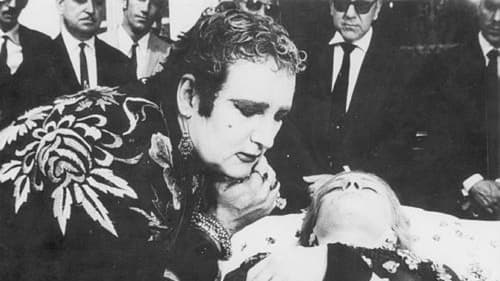
Producer
Newly wed arrives at her husband's family house, in the country. The heavy atmosphere of the house frightens her, and she takes refuge in her homosexual son-in-law's room, who is kept locked and hidden from society. A tragedy occurs, causing her departure. She's only to return seventeen years later, and sick.

Writer
Newly wed arrives at her husband's family house, in the country. The heavy atmosphere of the house frightens her, and she takes refuge in her homosexual son-in-law's room, who is kept locked and hidden from society. A tragedy occurs, causing her departure. She's only to return seventeen years later, and sick.

Director
Newly wed arrives at her husband's family house, in the country. The heavy atmosphere of the house frightens her, and she takes refuge in her homosexual son-in-law's room, who is kept locked and hidden from society. A tragedy occurs, causing her departure. She's only to return seventeen years later, and sick.

Writer
Adaptation of Machado de Assis’s classic novel “Dom Casmurro”. Bentinho and Capitu are friends since childhood and end up marrying. But Bentinho destroys his life when he starts suspecting Capitu has an affair with his best friend and that his son is not really his.

Director
Adaptation of Machado de Assis’s classic novel “Dom Casmurro”. Bentinho and Capitu are friends since childhood and end up marrying. But Bentinho destroys his life when he starts suspecting Capitu has an affair with his best friend and that his son is not really his.

Originally produced for German TV, Improvised and Purposeful is a firsthand look at the "Cinema Novo" movement (otherwise known as the 'Brazilian New Wave'). Director Joaquim Pedro de Andrade focuses on six Cinema Novo filmmakers working in Rio in 1967.
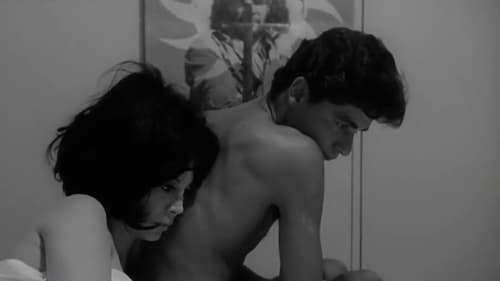
Producer
Passively facing the repression imposed by military dictatorship in Brazil in the 60s, a journalist gets into a personal crisis, aggravated by his love affair with an industrialist's wife, who doesn't want to leave her home because of her son

Writer
Passively facing the repression imposed by military dictatorship in Brazil in the 60s, a journalist gets into a personal crisis, aggravated by his love affair with an industrialist's wife, who doesn't want to leave her home because of her son

Director
Passively facing the repression imposed by military dictatorship in Brazil in the 60s, a journalist gets into a personal crisis, aggravated by his love affair with an industrialist's wife, who doesn't want to leave her home because of her son

Director
A comprehensive view of the situation of different ethnic groups in Brazil. In the testimonies gathered in the streets and neighborhoods of various capitals, black, white, mulatto, Portuguese, Italian and Japanese express their opinion and describe personal experiences involving relationship, racism, miscegenation and cultural exchange.
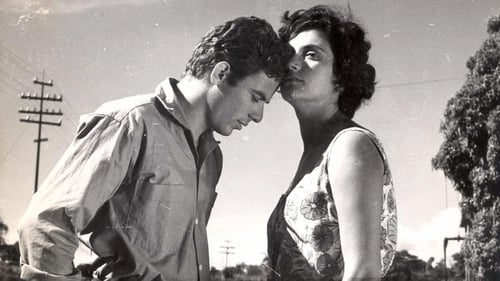
Writer
Irma can only think about getting rid of her cowardly dirty husband. She seeks out lovers not to commit adultery or for pleasure, but to find an accomplice to kill her husband.

Director
Irma can only think about getting rid of her cowardly dirty husband. She seeks out lovers not to commit adultery or for pleasure, but to find an accomplice to kill her husband.

Director
The arrival of a chemical plant in a fishermen haven brings along social transformations, interfering with the local traditions. A landmark of Cinema Novo, the result of a partnership between Mario Carneiro and Paulo Cesar Saraceni.











